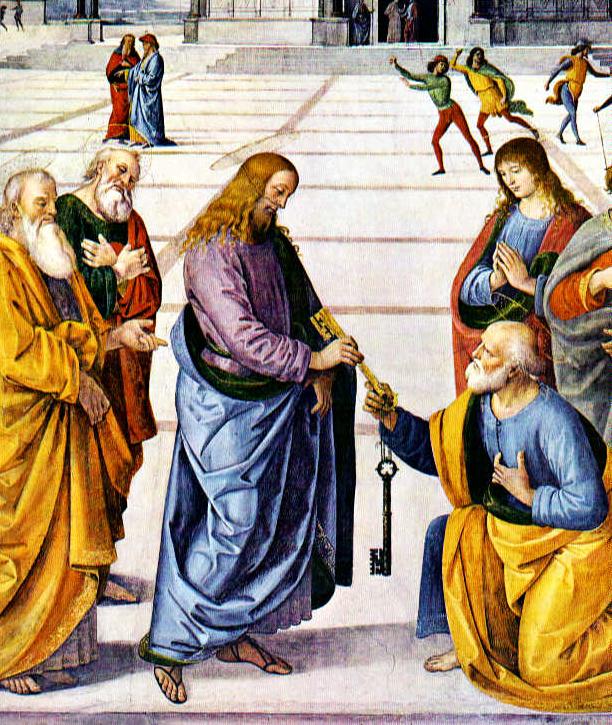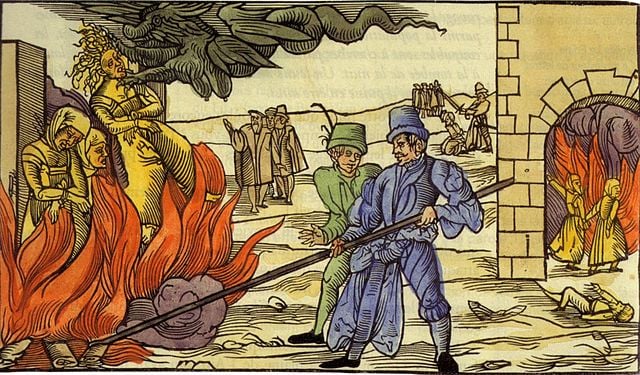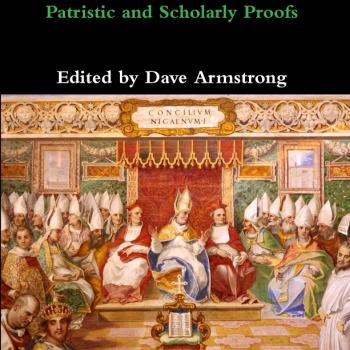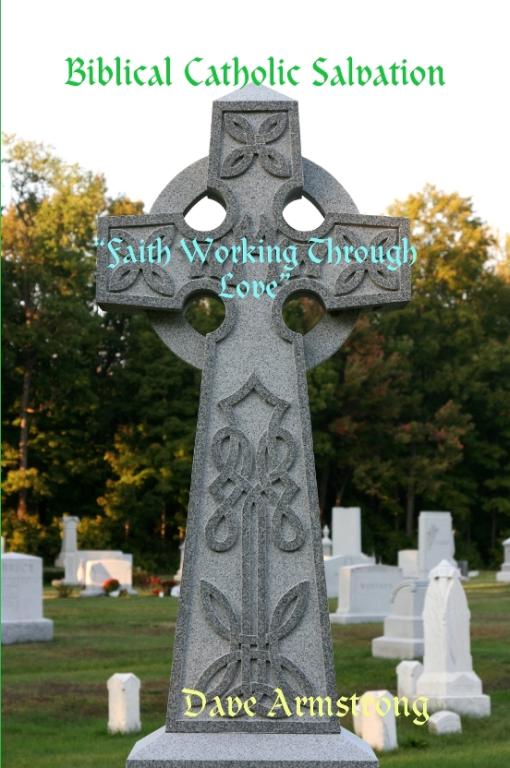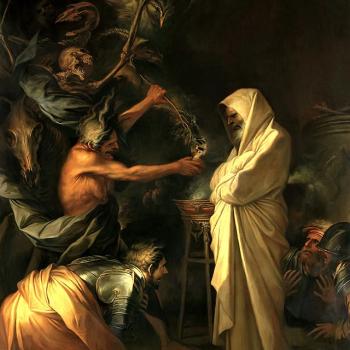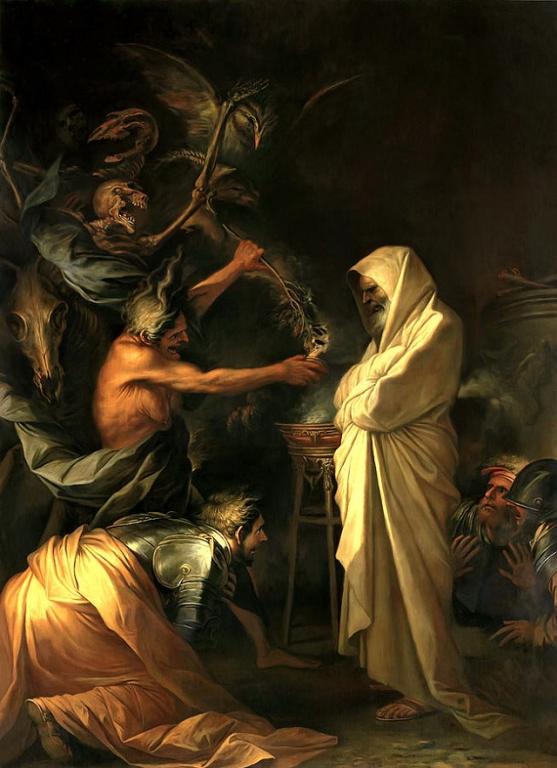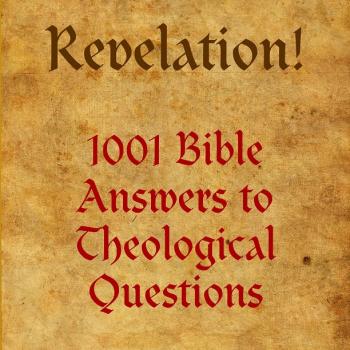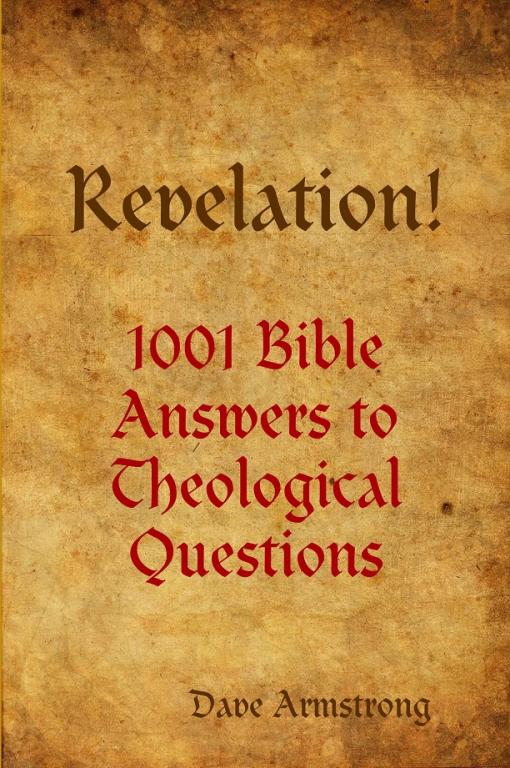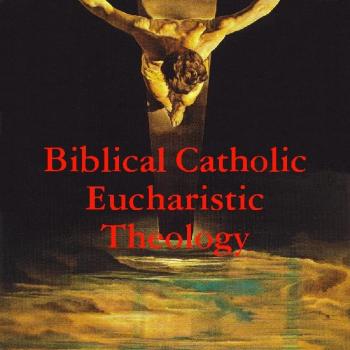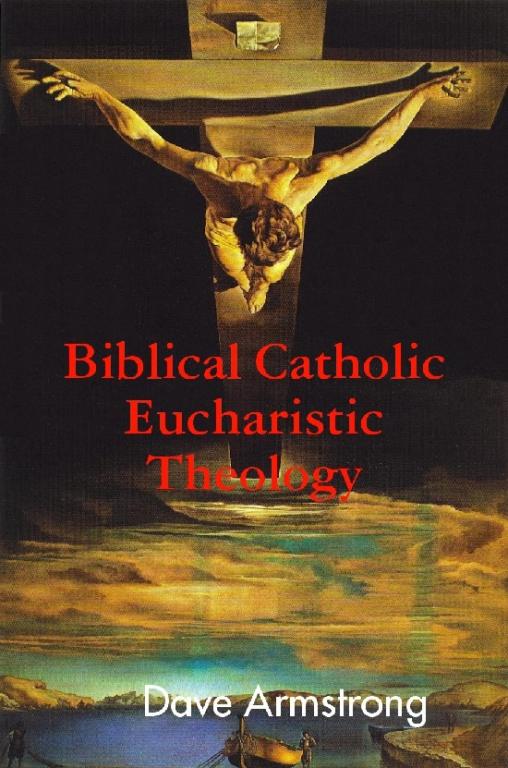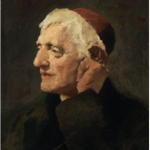Including Luther’s Qualified “Faith Alone”; Catholic Soteriology Accurately Presented; Meritorious Works; Bible vs. “Faith Alone”
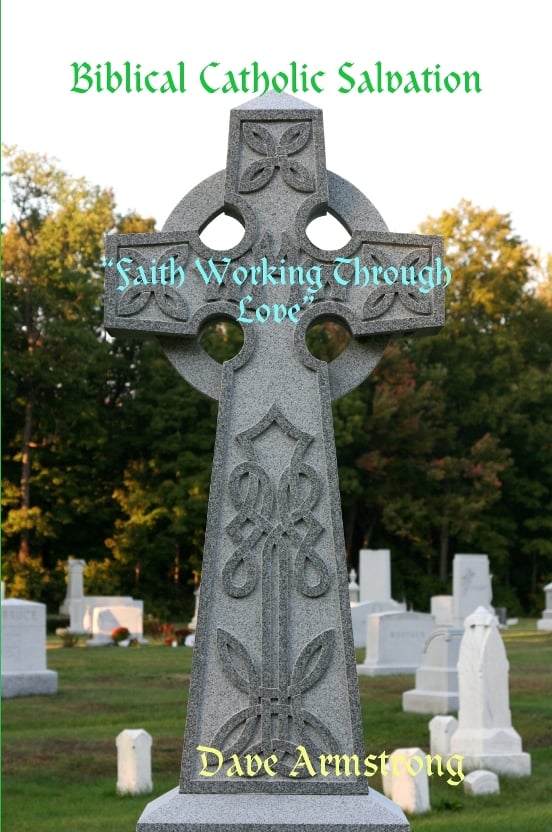
Norman L. Geisler (1932 – 2019) was an American evangelical Protestant theologian, philosopher, and apologist. He obtained an M.A. in theology from Wheaton College and a Ph.D. in philosophy from Loyola University, and made scholarly contributions to the subjects of classical Christian apologetics, systematic theology, philosophy of religion, Calvinism, Catholicism, biblical inerrancy, Bible difficulties, biblical miracles, the resurrection of Jesus, ethics, and other topics. He wrote or edited more 90 books and hundreds of articles.
Dr. Geisler was the Chairman of Philosophy of Religion at Trinity Evangelical Divinity School (1970–79) and Professor of Systematic Theology at Dallas Theological Seminary (1979–88) and a key figure in founding the Evangelical Philosophical Society. He also co-founded Southern Evangelical Seminary. He was known as an evangelical Thomist and considered himself a “moderate Calvinist”. He was not an anti-Catholic (i.e., he didn’t deny that Catholicism was fully a species of Christianity).
This is one of a series of comprehensive replies to his book, Roman Catholics and Evangelicals: Agreements and Differences (co-author, Ralph E. MacKenzie, graduate of Bethel Theological Seminary-West; Grand Rapids, Michigan: Baker Academic, 1995). It’s available online in a public domain version, which has no page numbers, so I will utilize page numbers from my paperback copy, for the sake of full reference. I consider it the best Protestant critique of Catholicism (especially in terms of biblical arguments) that I have ever found, from any time period. The arguments are, for the most part, impressively presented, thought-provoking, respectful, respectable, and worthy of serious consideration (which I’m now giving them).
I’ll be concentrating on the eight sections of Part Two: “Areas of Doctrinal Differences” (202 pages). These installments will be listed and linked on my Calvinism & General Protestantism web page, in section XVII: “Catholics and Protestants” (second from the end). Dr. Geisler’s and Ralph MacKenzie’s words will be in blue. My biblical citations are from RSV.
*****
Before Luther, the standard Augustinian position on justification stressed intrinsic justification . . . . Intrinsic justification argues that the believer is made righteous by God’s grace, as compared to extrinsic justification, by which a sinner is forensically declared righteous (at best, a subterranean strain in pre-Reformation Christendom). (p. 222)
Here, Dr. Geisler bears witness to the fact that the distinctive and novel “faith alone” Protestant soteriology scarcely existed before the 16th century. Thanks for the confirmation! Catholics have been making the same point for 500 years. Geisler made similar points in other parts of his book:
For Augustine, justification included both the beginnings of one’s righteousness before God and its subsequent perfection — the event and the process. What later became the Reformation concept of ‘sanctification’ then is effectively subsumed under the aegis of justification. Although he believed that God initiated the salvation process, it is incorrect to say that Augustine held to the concept of ‘forensic’ justification. This understanding of justification is a later development of the Reformation . . . (p. 85)
One can be saved without believing that imputed righteousness (or forensic justification) is an essential part of the true gospel. Otherwise, few people were saved between the time of the apostle Paul and the Reformation, since scarcely anyone taught imputed righteousness (or forensic justification) during that period! . . . . . (p. 502)
See also my article, including the leading Protestant historian of justification, Alister McGrath’s almost identical opinion: Sola Fide (Faith Alone) Nonexistent Before the Protestant Revolt in 1517 (Geisler & McGrath) [Catholic365, 10-31-23].
Geisler even notes that the classic “faith alone” view was not, strictly speaking, initiated even by Martin Luther:
Melanchthon, Luther’s great systematic theologian, did use forensic terms to describe justification. (p. 222)
Geisler commendably points out some other qualifications in Luther’s own views, which is rare in Protestant “Reformation” apologetics. These highlighted aspects reveal that Luther’s position was closer to the Catholic belief regarding justification than most people are aware:
Amid the Protestant stress on Luther’s discovery it is sometimes forgotten that Luther also believed in a progressive sense of the word “justification.” For example, he said: “For we understand that a man who is justified is not already righteous but moving toward righteousness (WA 391, 83; LW 34, 152).” Further, “Our justification is not yet complete…. It is still under construction. It shall, however, be completed in the resurrection of the dead (WA 391, 252).” This sense of progressive justification is what many Protestants call “sanctification,” the process by which we are made righteous, not an act by which one is declared righteous. Toon adds, “Justification by faith is both an event and a process. What later Protestants were to divide, Luther kept together. He is quite clear that there is a moment when a sinner is actually justified by faith. He then has the righteousness of another, the alien righteousness of Christ, imputed to him.” However, “this is the beginning of a journey toward a time (following the resurrection of the dead in the age to come) when he will in fact possess a perfect righteousness created in him by the Spirit of God.” Luther also suggested that the believer is righteous in the eyes of God and yet sinful at the same time. “For Luther, faith is the right (or righteous) relationship to God. Sin and righteousness thus coexist; we remain sinners inwardly, but we are righteous extrinsically in the sight of God.” However, “Luther is not necessarily implying that this co-existence of sin and righteousness is a permanent condition.” Instead, for Luther, “the existence of sin does not negate our status as Christians.” (pp. 223-224; Geisler cites at length Peter Toon, Foundations for Faith [Westchester, Ill., Crossway, 1983, 58-59)
I’ve pointed this out, too, for many years. See, for example, my articles:
Luther’s “Snow-Covered Dunghill” (Myth?) [10-5-05]
Martin Luther: Good Works Prove Authentic Faith [4-16-08]
Luther on Theosis & Sanctification [11-23-09]
Martin Luther: Faith Alone is Not Lawless Antinomianism [2-28-10]
Merit & Sanctification: Martin Luther’s Point of View [11-10-14]
Calvinist Origin of Luther’s (?) “Snow-Covered Dunghill”? [5-14-19]
Trent understands justification in two senses (the second corresponding to the Reformed doctrine of sanctification), this second justification requires good works as a condition for ultimate justification. “It is thus both possible and necessary to keep the law of God.” . . . Trent understood justification in two ways: the first and second phases which Catholic scholars refer to as “initial” and “progressive” justification respectively. (p. 225)
Very good. I have noted this, too:
Initial Justification & “Faith Alone”: Harmonious? [5-3-04]
Monergism in Initial Justification is Catholic Doctrine [1-7-10]
Trent Doesn’t Utterly Exclude Imputation (Kenneth Howell) [July 1996]
Geisler makes another very helpful and ecumenical observation, accurately conveying Catholic doctrine (it’s refreshing to see):
Trent states that our initial justification must be seen as a “gift.” Thus, it comes as a surprise to many Protestants that Roman Catholics believe that “If anyone shall say that man can be justified before God by his own works which are done . . . without divine grace through Christ Jesus: let him be Further, “nothing that precedes justification, whether faith or works, merits the grace of justification. For if it is by grace, it is no more by works; otherwise, as the apostle says, grace is no more grace.” The new Catechism of the Catholic Church says clearly: “The merits of our good works are gifts of the divine goodness” (2009).
It is only fair to point out here that when Catholic scholars cite James 2:24 (“we are justified by works”) they do not mean this initial justification which comes only by grace. Rather, they are referring to progressive justification (growth in righteousness) which Protestants call sanctification. Trent does assert, however, that works are necessary for salvation in the progressive and eventual senses, making it dogma that “by his good works the justified man really acquires a claim to supernatural reward from God.” It is precisely here that Catholics and evangelicals disagree. (p. 226; italics his own, in citing Trent)
At the end, Geisler, like a good Protestant, denies meritorious works. In so doing, he opposes much Scripture:
*
*
Romans 15:17-18 . . . In Christ Jesus, then, I have reason to be proud of my work for God. [18] For I will not venture to speak of anything except what Christ has wrought through me to win obedience from the Gentiles, by word and deed,
*1 Corinthians 3:6-9 I planted, Apol’los watered, but God gave the growth. [7] So neither he who plants nor he who waters is anything, but only God who gives the growth. [8] He who plants and he who waters are equal, and each shall receive his wages according to his labor. [9] For we are God’s fellow workers . . .
*1 Corinthians 15:10 But by the grace of God I am what I am, and his grace toward me was not in vain. On the contrary, I worked harder than any of them, though it was not I, but the grace of God which is with me.*2 Corinthians 6:1 Working together with him, then, we entreat you not to accept the grace of God in vain.*Philippians 2:12-13 . . . work out your own salvation with fear and trembling; [13] for God is at work in you, both to will and to work for his good pleasure.*2 Thessalonians 1:11 To this end we always pray for you, that our God may make you worthy of his call, and may fulfil every good resolve and work of faith by his power,
Mark 10:29-30 Jesus said, “Truly, I say to you, there is no one who has left house or brothers or sisters or mother or father or children or lands, for my sake and for the gospel, [30] who will not receive a hundredfold now in this time, houses and brothers and sisters and mothers and children and lands, . . .
receive the gift of eternal life). (p. 238)
Matthew 7:18-21 A sound tree cannot bear evil fruit, nor can a bad tree bear good fruit. [19] Every tree that does not bear good fruit is cut down and thrown into the fire. [20] Thus you will know them by their fruits. [21] “Not every one who says to me, ‘Lord, Lord,’ shall enter the kingdom of heaven, but he who does the will of my Father who is in heaven.. . .
Matthew 16:27 For the Son of man is to come with his angels in the glory of his Father, and then he will repay every man for what he has done.
Matthew 19:16-17, 20-21 And behold, one came up to him, saying, “Teacher, what good deed must I do, to have eternal life?” [17] And he said to him, “. . . If you would enter life, keep the commandments.” . . . [20] The young man said to him, “All these I have observed; what do I still lack?” [21] Jesus said to him, “If you would be perfect, go, sell what you possess and give to the poor, and you will have treasure in heaven; and come, follow me.” (in the parallel passage Lk 10:27 the ruler says, “. . . You shall love the Lord your God with all your heart, and with all your soul, and with all your strength, and with all your mind; and your neighbor as yourself.” And Jesus replied, “You have answered right; do this, and you will live.”)
Matthew 25:34-35, 41-43, 46 Then the King will say to those at his right hand, ‘Come, O blessed of my Father, inherit the kingdom prepared for you from the foundation of the world; [35] for I was hungry and you gave me food, I was thirsty and you gave me drink, I was a stranger and you welcomed me, . . . [41] Then he will say to those at his left hand, `Depart from me, you cursed, into the eternal fire prepared for the devil and his angels; [42] for I was hungry and you gave me no food, I was thirsty and you gave me no drink, [43] I was a stranger and you did not welcome me, naked and you did not clothe me, sick and in prison and you did not visit me.’ . . . [46] And they will go away into eternal punishment, but the righteous into eternal life.”
Luke 3:9 (+ Mt 3:10; 7:19) . . . every tree therefore that does not bear good fruit is cut down and thrown into the fire.
Luke 6:35 But love your enemies, and do good, and lend, expecting nothing in return; and your reward will be great, and you will be sons of the Most High; . . .
Romans 2:6-10 For he will render to every man according to his works: [7] to those who by patience in well-doing seek for glory and honor and immortality, he will give eternal life; [8] but for those who are factious and do not obey the truth, but obey wickedness, there will be wrath and fury. [9] There will be tribulation and distress for every human being who does evil, the Jew first and also the Greek, [10] but glory and honor and peace for every one who does good, the Jew first and also the Greek.
Romans 2:13-16 For it is not the hearers of the law who are righteous before God, but the doers of the law who will be justified. [14] When Gentiles who have not the law do by nature what the law requires, they are a law to themselves, even though they do not have the law. [15] They show that what the law requires is written on their hearts, while their conscience also bears witness and their conflicting thoughts accuse or perhaps excuse them [16] on that day when, according to my gospel, God judges the secrets of men by Christ Jesus.
Galatians 6:7-9 Do not be deceived; God is not mocked, for whatever a man sows, that he will also reap. [8] For he who sows to his own flesh will from the flesh reap corruption; but he who sows to the Spirit will from the Spirit reap eternal life. [9] And let us not grow weary in well-doing, for in due season we shall reap, if we do not lose heart.
1 Timothy 6:18-19 They are to do good, to be rich in good deeds, liberal and generous, [19] thus laying up for themselves a good foundation for the future, so that they may take hold of the life which is life indeed.
Hebrews 5:9 and being made perfect he became the source of eternal salvation to all who obey him,
James 2:14, 17, 20, 22, 24, 26 What does it profit, my brethren, if a man says he has faith but has not works? Can his faith save him? . . . [17] So faith by itself, if it has no works, is dead. . . . [20] . . . faith apart from works is barren . . . [22] You see that faith was active along with his works, and faith was completed by works, . . . [24] You see that a man is justified by works and not by faith alone. . . . [26] . . . faith apart from works is dead.
Revelation 20:12-13 . . . And the dead were judged by what was written in the books, by what they had done. [13] . . . and all were judged by what they had done.
Romans 6:22 But now that you have been set free from sin and have become slaves of God, the return you get is sanctification and its end, eternal life.*2 Thessalonians 2:13 But we are bound to give thanks to God always for you, brethren beloved by the Lord, because God chose you from the beginning to be saved, through sanctification by the Spirit and belief in the truth.
John 3:36 He who believes [pistuo] in the Son has eternal life; he who does not obey [apitheo] the Son shall not see life, but the wrath of God rests upon him. (1 Pet 2:7 uses the same parallelism, with pistuo and apitheo, though RSV translates the latter as “do not believe.” KJV renders it as “disobedient” in the same way that Jn 3:36 and several other verses [Rom 1:30; 2 Tim 3:2; Titus 1:6; 3:3] do)*John 5:28-29 . . . all who are in the tombs will hear his voice [29] and come forth, those who have done good, to the resurrection of life, and those who have done evil, to the resurrection of judgment.*John 15:2, 4-6, 8 Every branch of mine that bears no fruit, he takes away, and every branch that does bear fruit he prunes, that it may bear more fruit. . . . [4] Abide in me, and I in you. As the branch cannot bear fruit by itself, unless it abides in the vine, neither can you, unless you abide in me. [5] I am the vine, you are the branches. He who abides in me, and I in him, he it is that bears much fruit, for apart from me you can do nothing. [6] If a man does not abide in me, he is cast forth as a branch and withers; and the branches are gathered, thrown into the fire and burned. . . . [8] By this my Father is glorified, that you bear much fruit, and so prove to be my disciples.
1 John 2:3-5 And by this we may be sure that we know him, if we keep his commandments. [4] He who says “I know him” but disobeys his commandments is a liar, and the truth is not in him; [5] but whoever keeps his word, in him truly love for God is perfected. By this we may be sure that we are in him:
1 John 3:24 All who keep his commandments abide in him, and he in them. . . .
2 John 1:8 Look to yourselves, that you may not lose what you have worked for, but may win a full reward.






